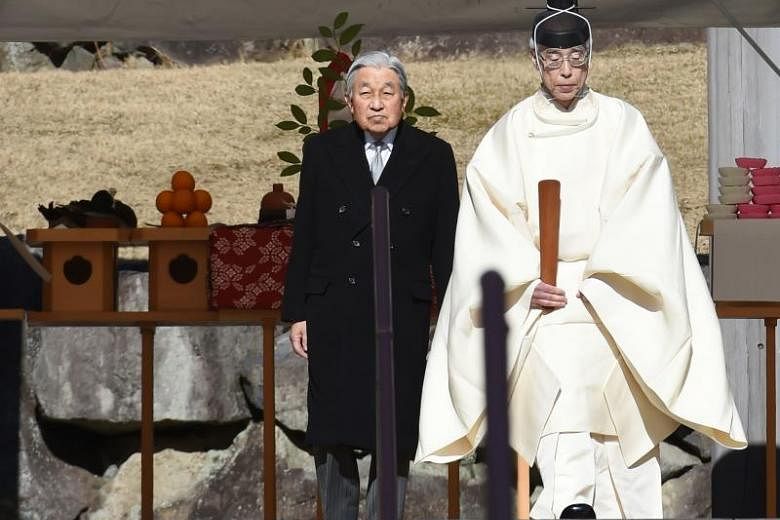TOKYO (BLOOMBERG) - Japan will exclude all female members of the imperial household from participating in one of the key rituals during the throne's handover from Emperor Akihito to his eldest son, Crown Prince Naruhito, Kyodo news and other Japanese media said on Friday (Jan 18).
The country has long banned women from inheriting the throne, a rule that had appeared to threaten the imperial line with extinction until the birth of Akihito's only grandson in 2006. Akihito this year will become the first emperor to abdicate in about 200 years, a process that will involve a complex series of public and private rituals, the details of which are being determined by officials.
In the May 1 Kenji to Shokei no Gi ceremony at the Imperial Palace, the new emperor will inherit sacred regalia such as a sword and jewels, Kyodo said.
Asked why women and younger members of the imperial household were being excluded from the ritual, Chief Cabinet Secretary Yoshihide Suga said the ceremonies would be based on the Japanese Constitution and respect for the traditions of the imperial family.
No women were invited to the ceremony when Akihito took the throne in 1989, Kyodo said.
Members of the Cabinet will be invited, possibly including Japan's only female minister, Satsuki Katayama, the minister for regional revitalisation. This is because ministers will be defined as observers, rather than actually taking part in the ceremony, Kyodo said.
Female members of the imperial household will be present at other rituals relating to the handover.
Women in the imperial household lose their status and become ordinary citizens when they marry. This contrasts with the UK, which allows female monarchs and updated its laws to allow women equal status in the order of succession as of 2015.
Japanese Prime Minister Shinzo Abe has called for women to play a more active role in the economy and to take on leadership roles, to help counter Japan's shrinking working population.
Yet scandals over sexual harassment and the exclusion of women from the nation's medical schools have cast a shadow over this policy.

